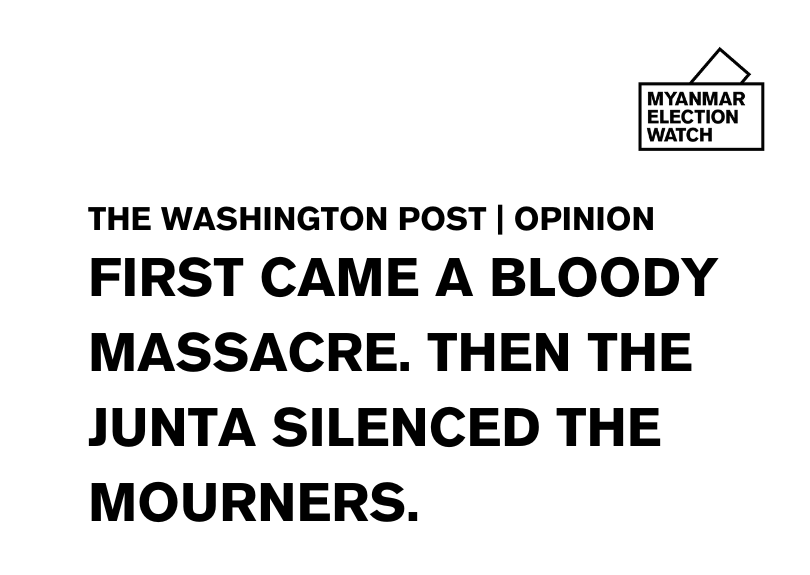A new Washington Post's article reports how pro-junta Telegram groups in Myanmar are silencing dissent.

"Dictators constantly fear they will be overthrown. The digital age has brought them plenty of tools to cling to power. They can use online means to propagandize, to flood the zone of information, and they can pressure or change ownership of platforms to control the message. Dictators can also use force to coerce and block objectionable platforms or sites, or to erect barriers, such as China’s Great Firewall. They have the power to muster cyberwarriors to infiltrate the devices of their opponents, spy on them and to attack or destroy them. They can erect elaborate surveillance mechanisms to track people’s movements at the grocery store — or at a protest. They can reach beyond their own borders.
But one of the most valuable tools an autocrat can have is the ability to zoom down to a granular level to locate individuals at odds with the regime.
That is what the Myanmar Telegram channel is doing — picking out opponents one by one.
Facebook has some 20 million users in Myanmar, a country of 53.8 million people. For many, Facebook is the whole internet, a source of news and information as well as social posting. The material gathered by Radio Free Asia shows that many of those who spoke out against the government did so on Facebook accounts. It is an enduring risk in dictatorships; those who are brave enough to speak out on social media also expose themselves — they put a target on their own back.
The Telegram snitch line in Myanmar today has 54,500 subscribers. Informers are instructed where to send their report, and to “please make sure the address is accurate.”"
Read the full article here.
